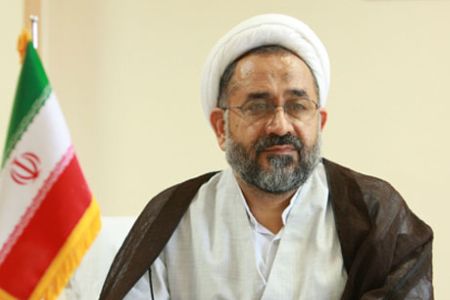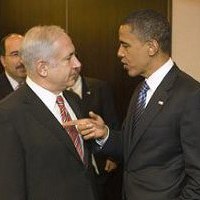![]()
Sun, Jan 02, 2010 | The Meir Amit Intelligence and Terrorism Information Center
Intelligence Minister Reveals Iran Deciphered Encrypted E-mail Correspondence of Regime Opponents
Iran’s Intelligence Minister Hojjat-ol-Eslam Heydar Moslehi announced last weekend that, during the riots that had broken out after the presidential election in June 2009, the Intelligence Ministry had intercepted encrypted e-mail correspondence sent by the rioters and was able to decipher it.
Speaking at a conference on the achievements of Iranian expatriates held at Tehran’s Shahid Beheshti University on Saturday, the minister said that the American administration had created computer networks to fight the Iranian regime, but that the networks failed thanks to the efforts of Iranian intelligence services.
Moslehi claimed that e-mail was the most important means of contact between rioters inside Iran and their supporters abroad, adding that the intelligence services had managed to monitor their activity by intercepting their correspondence and defeat the enemies of the state. He also noted that in an interview given by a senior Iranian official last year, the official revealed that intelligence elements monitored the regime opponents’ e-mail correspondence. Within 24 hours of the interview, the regime opponents began encrypting their correspondence; however, within 48 hours Iranian intelligence experts were able to break the code and decipher the e-mails.
Moslehi went on to say that Iranian expatriates were not part of the opposition. The minister claimed that while the number of anti-regime exiles was limited, foreign intelligence services provided them with equipment and means to help them make their voice heard.
He noted that the Iranian exiles must be encouraged to cooperate with the government of Iran on security-related matters to stop foreign intelligence services from using them for their schemes against the Islamic republic. Many Iranian expatriates reside in Iran’s enemy states, which operate powerful intelligence services, Moslehi said, and the government of Iran must take the necessary steps to keep these Iranians from falling into the trap set for them by such countries. The government needs to gain the trust of the Iranian expatriates by promoting the national identity, values, and beliefs shared by all Iranians (various news agencies, December 25).
After the riots that broke out in the aftermath of the presidential election, Revolutionary Guards and internal security elements claimed that the demonstrators had used e-mails, text messages, and social networks to communicate and send each other reports pertaining to the riots.
In January 2010, internal security forces chief Esma’il Ahmadi-Moqaddam said that the text messages and e-mail correspondence used by the opposition activists to organize violations of public order and illegal demonstrations were monitored by the internal security forces. Speaking at a press conference held during an Iranian police convention, Ahmadi-Moqaddam said that the authorities intended to take stricter measures against those who use text messages and e-mails to organize “illegal gatherings” than against their participants. Ahmadi-Moqaddam warned those responsible for organizing public order disruptions not to be certain that they have the ability to prevent government monitoring of text messages and e-mail correspondence sent by them through proxy servers. Opposition activists must assume that all their correspondence is being fully monitored by the authorities, the internal security forces chief said (ILNA, January 15). Ahmadi-Moqaddam’s statement drew criticism from government critics, who claimed that the statement allegedly contradicted clause 25 of the Iranian constitution, which bans wiretapping and exposing the contents of civilians’ letters, correspondence, and telephone conversations.



 RSS
RSS











Intelligence Minister Reveals #Iran Deciphered Encrypted E-mail Correspondence of Regime Opponents | #Shiism #Islam http://j.mp/eBpeQ0
[…] this idea were recent comments by Iran’s Intelligence Minister Hojjat-ol-Eslam Heydar Moslehi. Recently he announced that the […]
[…] ity hevitra ity ireo fanehoan-kevitra tato ho ato avy amin'i Hojjat-ol-Eslam Heydar Moslehi, Minisitry ny Fanangonam-baovao Iraniana. Tsy ela […]
I don’t think this ides works too.